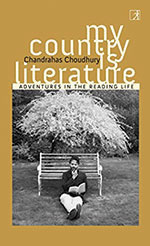The number of celebrated poets and novelists who began their career reviewing books is probably much higher than is currently known. To start with, current literary culture, while being sustained invisibly by reviewing, is rather uncharitable towards the modest review. Writers too have colluded with this ethos and have tended to distance themselves from their own ‘jobbing work’ once they have achieved name and fame. Dr. Johnson of the eighteenth century was probably the last known writer of English literature who was as much of a ‘grandly generalizing sage’ as he was a ‘proletarianized hack’ (Terry Eagleton, The Function of Criticism, p. 32.) Twentieth century poet TS Eliot, we know, was engaged in extensive reviewing during his Faber and Faber days, but took a public stance against reviewing in his serious literary essays. Critics, by contrast, have been more on board with their reviewing work, seeing it as the inevitable supply line that feeds their literary criticism. Oxford academic and English Professor John Carey comes to mind here. While leaving his decisive mark in the academic field with his scholarly books on John Donne, William Thackeray and Charles Dickens, he took avidly to the task of edifying and entertaining the general public with his extremely witty and lucid reviews of books by contemporary authors in the pages of London Times. A collection of his reviews has been published as Original Copy (1987).

A Paradigm of Creative Criticism
Himansu S Mohapatra
MY COUNTRY IS LITERATURE: ADVENTURES IN THE READING LIFE by Chandrahas Choudhury Simon & Schuster, New Delhi, 2021, 287 pp., 699.00
February 2022, volume 46, No 2
